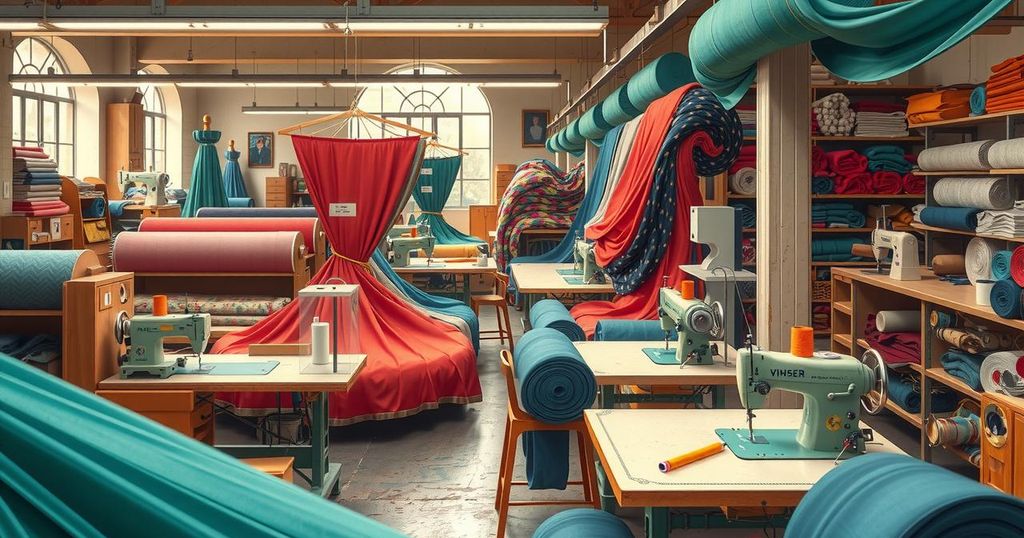Madagascar’s textile sector faces a critical threat with potential loss of 60,000 jobs due to new US tariffs. The 47 percent tariff impacts low-income importers like Madagascar, which heavily relies on textile exports. The industry employs around 180,000 people and constitutes 20% of GDP, highlighting the economic stakes involved. As setbacks loom, the government seeks collaboration with other affected nations to address the crisis.
The textile industry in Madagascar is currently facing a severe threat due to recent tariffs imposed by the United States government, which could put approximately 60,000 jobs at risk. The new 47 percent tariffs primarily affect low-income countries like Madagascar, which normally engage in smaller import volumes of US goods but are now subjected to very high tax rates. This has sparked major concerns for the nation’s economic stability.
The textile and clothing sector is a vital component of Madagascar’s economy, employing around 180,000 individuals and representing roughly 20 percent of the country’s GDP. In 2024 alone, this industry exported $733 million worth of goods to the US. Until now, these transactions have been facilitated by the African Growth and Opportunity Act (AGOA), which previously allowed many African goods to enter the US market tariff-free.
Rindra Andriamahefa, who leads an industry lobby group, raised alarms about the potential job losses, highlighting that approximately 60,000 employees might be affected due to the tariff increase. This estimation includes both temporary and permanent job displacements, indicating a significant economic impact that extends beyond just numbers.
The situation is precarious for Madagascar’s textile sector, as thousands rely on this industry for their livelihoods. Furthermore, the overall economic stability of the nation hangs in the balance. Beatrice Chan Ching Yiu, president of the Groupement des Entreprises Franches et Partenaires (GEFP), voiced concerns that investors may look to countries that only face the minimum tariff of 10 percent imposed by the Trump administration. “The pandemic was one thing. What we are facing now is quite another,” noted Ching Yiu, emphasizing the gravity of the situation.
Given the high stakes, the likelihood of temporary layoffs or job dismissals could become unavoidable for many workers in the sector. In response to this crisis, Madagascar’s government has initiated discussions with other affected African nations to form a united front against the tariffs, seeking a coordinated response to mitigate this economic challenge.
The foreign affairs ministry of Madagascar confirmed that constructive dialogues with US authorities have begun. These talks include technical discussions aimed at understanding the rationale behind the tariff decision, reflecting an effort to navigate this complex situation responsibly.
The new tariffs from the US could severely impact Madagascar’s textile industry, threatening 60,000 jobs in an economy where this sector plays a crucial role. As the government engages with affected countries to address these challenges, the future of thousands of workers remains uncertain amid international negotiations. The situation highlights the importance of continued global trade discussions and support for developing economies.
Original Source: au.news.yahoo.com






